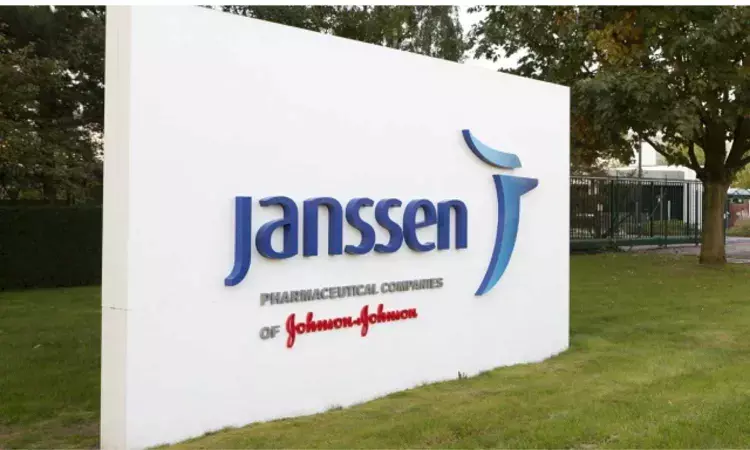- Home
- Medical news & Guidelines
- Anesthesiology
- Cardiology and CTVS
- Critical Care
- Dentistry
- Dermatology
- Diabetes and Endocrinology
- ENT
- Gastroenterology
- Medicine
- Nephrology
- Neurology
- Obstretics-Gynaecology
- Oncology
- Ophthalmology
- Orthopaedics
- Pediatrics-Neonatology
- Psychiatry
- Pulmonology
- Radiology
- Surgery
- Urology
- Laboratory Medicine
- Diet
- Nursing
- Paramedical
- Physiotherapy
- Health news
- Fact Check
- Bone Health Fact Check
- Brain Health Fact Check
- Cancer Related Fact Check
- Child Care Fact Check
- Dental and oral health fact check
- Diabetes and metabolic health fact check
- Diet and Nutrition Fact Check
- Eye and ENT Care Fact Check
- Fitness fact check
- Gut health fact check
- Heart health fact check
- Kidney health fact check
- Medical education fact check
- Men's health fact check
- Respiratory fact check
- Skin and hair care fact check
- Vaccine and Immunization fact check
- Women's health fact check
- AYUSH
- State News
- Andaman and Nicobar Islands
- Andhra Pradesh
- Arunachal Pradesh
- Assam
- Bihar
- Chandigarh
- Chattisgarh
- Dadra and Nagar Haveli
- Daman and Diu
- Delhi
- Goa
- Gujarat
- Haryana
- Himachal Pradesh
- Jammu & Kashmir
- Jharkhand
- Karnataka
- Kerala
- Ladakh
- Lakshadweep
- Madhya Pradesh
- Maharashtra
- Manipur
- Meghalaya
- Mizoram
- Nagaland
- Odisha
- Puducherry
- Punjab
- Rajasthan
- Sikkim
- Tamil Nadu
- Telangana
- Tripura
- Uttar Pradesh
- Uttrakhand
- West Bengal
- Medical Education
- Industry
Janssen seeks USFDA nod for Niraparib and Abiraterone Acetate Dual-Action Tablet, plus Prednisone to treat patients with Metastatic Castration-Resistant Prostate Cancer with BRCA Gene Mutations

Metastatic castration-resistant prostate cancer characterizes cancer that no longer responds to androgen deprivation therapy and has spread to other parts of the body.
Raritan: The Janssen Pharmaceutical Companies of Johnson & Johnson has announced the submission of a New Drug Application (NDA) to the U.S. Food and Drug Administration (FDA) seeking approval of niraparib in combination with abiraterone acetate, in the form of a dual-action tablet (DAT), plus prednisone, for the treatment of patients with BRCA-positive metastatic castration-resistant prostate cancer (mCRPC).
“Patients with mCRPC and BRCA mutations face a more aggressive form of prostate cancer and high unmet needs in terms of treatment options. The data supporting this submission reinforce the importance of biomarker testing to identify the subgroups of patients that are most likely to respond to a targeted treatment option,” said Peter Lebowitz, M.D., Ph.D., Global Therapeutic Area Head, Oncology, Janssen Research & Development, LLC. “This submission further represents our commitment at Janssen to discover and develop precision medicine approaches and combination therapies to help improve outcomes for patients living with genetically defined disease.”
Prostate cancer is one of the most common cancers in the U.S., with an estimated 268,490 new cases diagnosed in 2022. Approximately 10 to 50 percent of patients progress to mCRPC within three years of diagnosis, of which an estimated 10 to 15 percent harbor a BRCA mutation.
The combination of niraparib, a highly selective poly (ADP-ribose) polymerase (PARP) inhibitor, and abiraterone acetate, a prodrug of abiraterone, a CYP17 inhibitor, plus prednisone, targets two oncogenic drivers in patients with mCRPC: the androgen receptor axis and HRR gene alterations. The combination of niraparib with abiraterone acetate plus prednisone (AAP) is intended for patients with BRCA mutations who have not received prior treatment for mCRPC except for standard of care, next-generation androgen receptor inhibitors and up to four months of AAP. Through the DAT formulation, this therapeutic option may help improve compliance and reduce pill burden.
The NDA is supported by data from the MAGNITUDE study (NCT03748641), a Phase 3, randomized, double-blind, placebo-controlled, multicenter study evaluating the safety and efficacy of niraparib plus AAP as a first-line treatment in patients with mCRPC, with or without alterations in HRR associated genes. Patients with HRR gene alterations were randomized to receive niraparib 200 mg once daily plus AAP [n=212], or placebo plus AAP [n=211].
First results from MAGNITUDE were presented at the American Society of Clinical Oncology – Genitourinary Cancers Symposium (ASCO GU) 2022 Annual Meeting (Abstract #12) for the primary endpoint of investigator-evaluated radiographic progression-free survival (rPFS) in all HRR-positive patients, as well as patients with BRCA mutations, receiving niraparib plus AAP.5 Results from the secondary interim analysis (IA2) were presented at the ASCO GU 2023 Annual Meeting (Abstract #170). In IA2, at 26.8 months of median follow-up, researchers further reviewed time to symptomatic progression (TSP) and time-to-initiation of cytotoxic chemotherapy (TCC) in the HRR-positive population and the BRCA subgroup. The study continues to collect data on the secondary endpoints, which include TCC, TSP and overall survival.
Ruchika Sharma joined Medical Dialogue as an Correspondent for the Business Section in 2019. She covers all the updates in the Pharmaceutical field, Policy, Insurance, Business Healthcare, Medical News, Health News, Pharma News, Healthcare and Investment. She has completed her B.Com from Delhi University and then pursued postgraduation in M.Com. She can be contacted at editorial@medicaldialogues.in Contact no. 011-43720751


